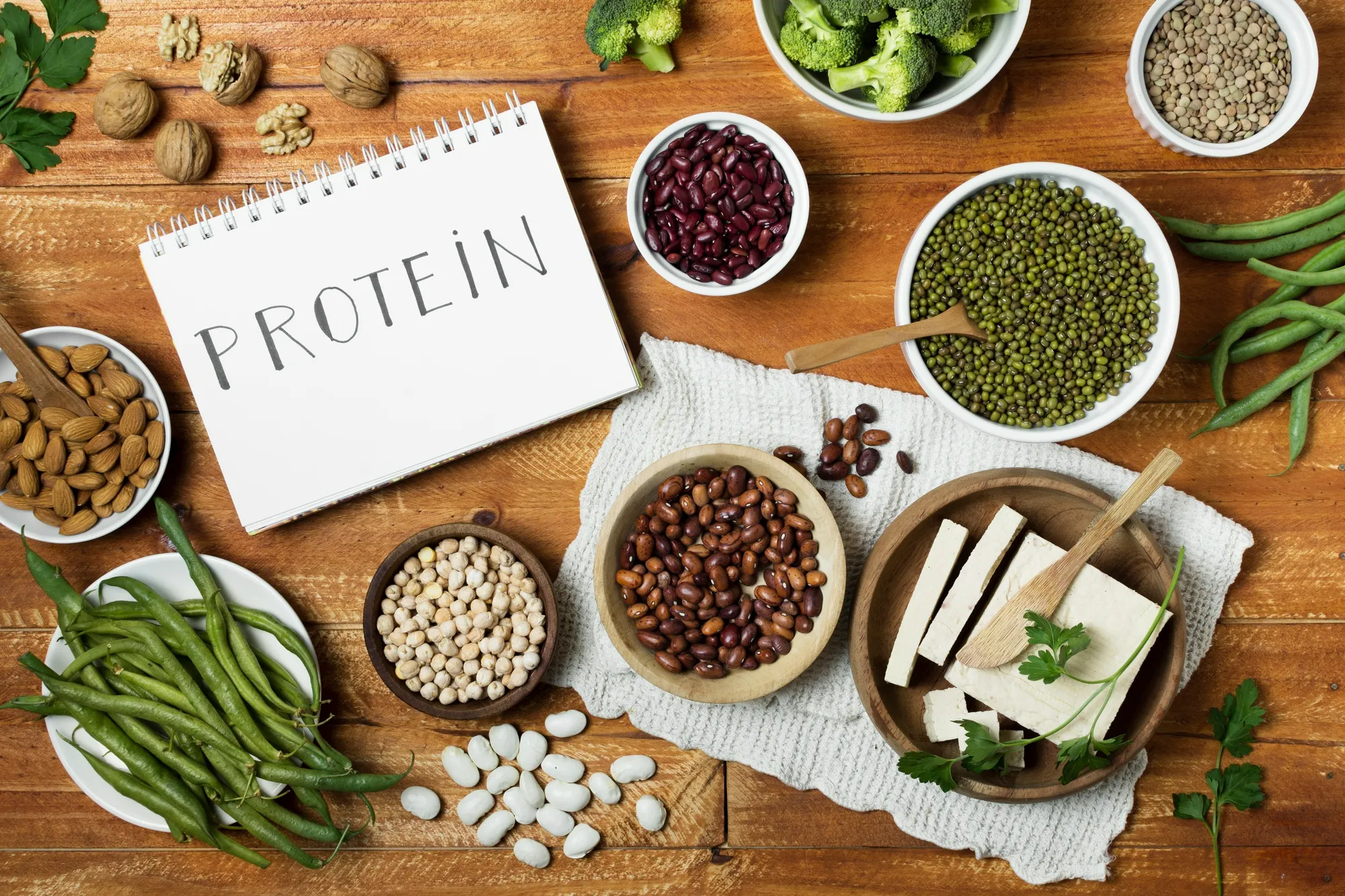Beyond Nutrition: The Building Blocks of Proteins and the Impact of Elevated Protein Consumption on Your Body
Protein. It’s a word synonymous with muscle, strength, and fitness. But beyond the gym, protein plays a crucial role in every aspect of our health, from building and repairing tissues to regulating hormones and supporting a robust immune system. Yet, navigating the world of protein can be confusing, filled with questions about its structure, sources, and impact on our well-being.
This comprehensive guide delves into the fascinating world of protein, decoding its complexities and empowering you to make informed choices for a healthier you.
The Building Blocks of Proteins: Unveiling the Secrets of Protein Structure
Imagine a microscopic world where intricate structures, built from tiny alphabet blocks, define life itself. These “alphabet blocks” are amino acids, the 20 essential building blocks that come together to form the magnificent molecules we call proteins. Each protein possesses a unique sequence of amino acids, meticulously arranged to fold into a specific 3D shape. This intricate structure dictates the protein’s function, making it a tiny marvel capable of performing diverse tasks within our bodies.
Protein Synthesis: Witnessing the Body’s Masterpiece in Action
Ever wondered how a simple chicken breast transforms into the complex muscle tissue in your arm? The answer lies in protein synthesis, a beautifully orchestrated process where our cells translate genetic instructions from DNA into functional proteins. Ribosomes, the cellular “protein factories,” meticulously assemble amino acids based on these instructions, crafting the specific proteins needed for growth, repair, and countless other functions.
Protein-Rich Foods Demystified: From Everyday Staples to Nutrient Powerhouses
Now, let’s translate this protein knowledge into your kitchen. From the humble egg (around 6 grams of protein each) to the mighty chicken thigh (a whopping 13.5 grams per skinless, boneless serving), countless everyday foods pack a protein punch. Wondering how much protein lurks in your morning oatmeal? Look no further – a cup boasts about 6 grams! Understanding the protein content of common foods empowers you to make informed choices and plan protein-rich meals with ease.
Bridging the Gap: How Dietary Protein Becomes Your Body’s Building Blocks
The protein we consume embarks on a fascinating journey. During digestion, dietary proteins are broken down into their individual amino acids. These amino acids are then absorbed into the bloodstream, ready to be transported to various tissues and organs.
Here, they participate in the remarkable process of protein synthesis, becoming the building blocks for muscle, enzymes, hormones, and more. It’s this intricate dance between dietary protein and protein synthesis that fuels our bodies and keeps us functioning optimally.
Unleash Your Inner Muscle Machine: Power Up with Protein for Everyone
Building lean muscle and achieving a sculpted physique requires dedication and smart fueling. Protein, the cornerstone of muscle growth and repair, becomes your ultimate companion on this journey.
But navigating the world of protein powders can be confusing, especially with all the conflicting information out there. Fear not, fitness enthusiasts! This guide empowers you to choose the right protein powder, unlock its muscle-building magic, and conquer your fitness goals.
Why Protein Powders Rock for Everyone?
-
Convenience: Forget struggling with bulky meals. Protein powders offer a quick, portable way to boost your protein intake, perfect for busy schedules and active lifestyles.
-
Dietary Needs: Lactose intolerant, vegan, or simply dairy-free? No worries! Diverse protein types like whey, casein, and soy cater to various dietary preferences and allergies.
-
Digestive Ease: Compared to solid protein sources, some powders boast easier digestion, minimizing tummy troubles for those with sensitive stomachs.
-
Targeted Benefits: Whey protein, ideal for pre-workout, digests rapidly, delivering essential muscle-building amino acids. Casein, a slower-digesting protein, aids muscle repair and growth throughout the day. Soy protein, a complete protein source for vegetarians and vegans, provides all nine essential amino acids.
Building Muscle, Busting Myths

The comprehensive research shows the impact of protein supplementation on both resistance and endurance exercise. It highlights the crucial role of protein in muscle adaptation, repair, and performance enhancement, particularly for resistance training.
Muscle Fuel
Studies show consuming protein, especially during workouts, promotes muscle healing and development. Whey protein, with its rich amino acid profile, shines as a pre-workout powerhouse.
The Synergy of Carbs
Don’t neglect carbs! Post-workout, combine protein powder with carbohydrates like those found in fruit smoothies for optimal muscle recovery and growth.
Weight Loss: Protein’s Double Duty

Satiety Savior
Research suggests protein’s high satiety potential, making you feel fuller longer, potentially aiding weight management goals. Studies show whey protein supplementation may improve body weight, fat mass, and cardiovascular health in overweight individuals.
Smart Choices for Success
Not all protein powders are created equal. For weight loss, opt for low-calorie, high-protein options made with quality ingredients and responsible manufacturing practices.
The study shows that participants on the High-Protein Diet-HPD lost significantly more weight and body fat compared to those on the Standard-Protein Diet-SPD, despite consuming similar calorie levels. Additionally, the HPD group showed improvements in blood sugar control, blood pressure, and cholesterol levels. This research suggests that HPDs may be an effective strategy for weight loss and managing metabolic health risks.
Common Questions and Health Insights: Separating Fact from Fiction
The world of protein is rife with myths and misconceptions. Let’s address some of the most common questions with trending search queries in mind:
Protein and Exercise: Building a Stronger You
Protein plays a vital role in muscle growth and repair, making it a fitness enthusiast’s best friend. Aiming for 1.2-2 grams of protein per kilogram of body weight daily, strategically consuming protein around workouts, and choosing quality sources like chicken breasts or protein powder can optimize your fitness journey.
Protein and Digestive Health: Dispelling the Myths:
Contrary to popular belief, protein in moderation doesn’t harm your gut. In fact, it can contribute to a healthy gut microbiome. Choose diverse protein sources, stay hydrated, and listen to your body to ensure smooth digestion.
Protein Supplements: Friend or Foe?
Protein supplements like protein powder can be a convenient way to boost your intake, but they’re not magic bullets. Prioritize whole food sources, choose high-quality supplements like whey protein or plant-based protein when needed, and consult a healthcare professional for personalized guidance.
Practical Tips for Daily Protein Intake: From Planning to Plate
Now, let’s put theory into practice. Here are some handy tips for incorporating protein into your daily routine:
Quick and Healthy Protein-Enhanced Meals
Whip up delicious protein-packed meals in minutes with recipes like protein smoothies, veggie omelets with whole-wheat toast, or stir-fries loaded with lean protein and colorful vegetables.
Balancing Your Protein Intake
Aim for a balanced diet with protein, carbohydrates, healthy fats, and essential vitamins and minerals. Use online resources or consult a nutritionist to create a personalized meal plan.
Conclusion
Protein is no longer just a gym-goer’s concern; it’s the cornerstone of optimal health and well-being. By understanding its structure, sources, and role in our bodies, we can make informed choices about our diet and lifestyle. Embrace the power of protein and unlock its potential to fuel your fitness, boost your metabolism, sharpen your mind, strengthen your immune system, and promote healthy aging.
Remember, incorporating protein into your diet doesn’t have to be complicated. Explore the diverse world of protein-rich foods, experiment with delicious recipes, and prioritize quality over quantity. By making informed choices and embracing the power of protein, you can unlock a healthier, stronger, and more vibrant you.
Share this content:














Post Comment